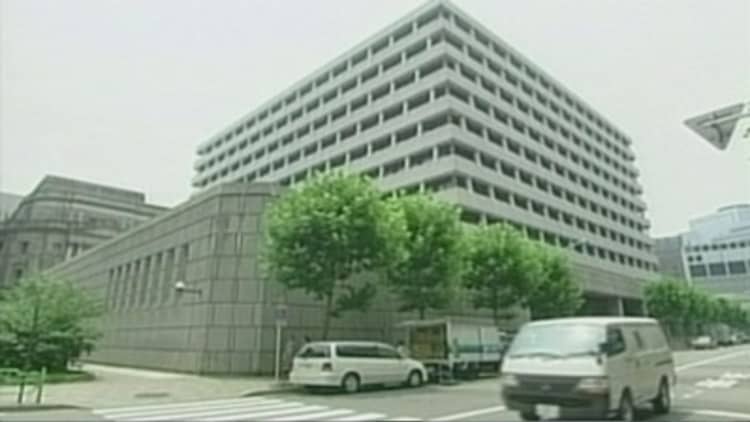
For the past year or so, China has been the usual suspect behind currency volatility. Step forward Japan.
Tokyo's unprecedented decision to introduce negative interest rates on Friday may intensify concerns that global central banks are delving into a tit-for-tat currency devaluation fight, strategists warned.
By implementing negative rates and leaving the door open to sustained easing to boost inflation, the Bank of Japan (BOJ) is effectively weakening the yen against the greenback. The currency slipped as much as 2 percent to hit a one-month trough of 121.4 following Friday's shock announcement and more short-term weakness is widely anticipated.
"The yen has been the strongest performing funding currency since the turn of the year but today's news should result in a reversal of that," said BNP Paribas in a Friday note, expecting the currency to trade around 121 per dollar for some time to come.
This has serious implications for China as the world's second-largest economy aims to make the renminbi, or yuan, more market-oriented by basing it on a trade-weighted basket of international currencies, which includes the yen.
"If China really sticks to this new way of managing the yuan, then any devaluation of the Japanese yen will have an impact on the yuan," said Kelvin Tay, managing director and regional CIO of southern APAC at UBS Wealth Management.
"We may not see a currency war this time, but rather a currency skirmish."
If the yen keeps depreciating, the yuan is likely to strengthen as a result of its trade-weighted links. That could force the People's Bank of China (PBOC) to engineer another bout of yuan weakness to bolster China's stumbling economy, which would just exacerbate global market volatility.
A weaker currency boosts overseas earnings for manufacturers and exporters, giving that country a key advantage over rivals.
"The grand macro-economic elephant in the room is what happens if China is forced into a major one-off devaluation in retaliation. Markets are unlikely to react well to a big yuan devaluation, and the further the ECB and the BOJ force their currencies down, the more they push the PBOC to act themselves," said IG market strategist Angus Nicholson in a note.
Following the renminbi's 2 percent devaluation last August and sharply lower yuan fixings earlier this month, Asian currencies came under severe pressure, with some governments taking concrete action in response to Beijing's move.
Vietnam, for example, has already devalued the dong several times to stay competitive with Chinese goods and the fear is that others may follow suit, creating a spiral of devaluations similar to the 1997 Asian financial crisis.
Major banks identify the won, rupiah, ringgit and Singapore dollar as especially vulnerable to yuan weakness due to the high level of Chinese exposure their exporters have, and their respective central banks could engage in depreciation tactics to not only lift their exporters but to prevent capital flows as well.
Notably, the developments in Japan come a mere twenty-four hours after Chinese Premier Li Keqiang announced Beijing would not engage in competitive currency devaluation, saying China does not intend to use a cheaper yuan as a way to boost exports.
Chinese officials may now be eating their words following the Bank of Japan's move, Tay joked.
Friday's news also adds more pressure on the European Central Bank to ease at its March review, he noted. As for the U.S. Federal Reserve, it may have to consider delaying hiking rates in March if market panic doesn't stabilize by then since it wouldn't make sense for them to increase volatility, he explained.


